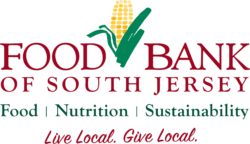
Written by Tammy Paolino for the Courier Post – 4:41 p.m. ET March 15, 2017 – If you think about a local supermarket not wasting food, you may think of things like not ordering too much of a dairy product at one time, or not rotating fresh items so customers can find them easily.
You probably wouldn’t think of a supermarket employee carefully scrutinizing a cantaloupe for signs of softness, and saving it from a landfill by channeling it quickly to a local food bank.
More on reducing food waste: #WasteNot
But that second process, known as “gleaning,’’ saves thousands of pounds of food and helps feed hungry South Jersey residents every week.
Ravitz Family Markets, owner and operator of six ShopRite and PriceRite stores in South Jersey, has been recognized by the U.S. Environmental Protection Agency (EPA) for its efforts in reducing food waste and increasing donations to the Food Bank of South Jersey, which serves Burlington, Camden, Gloucester and Salem counties.
The supermarket chain donated 239 tons, or nearly a half million pounds of food, to local food banks in 2016, and sent another 685 tons of food to a composting facility. That adds up to more than 1.8 million pounds of food staying out of landfills.
It is the second year the supermarket chain was so recognized.
For Shawn Ravitz, vice president of administration for Ravitz Family Markets, it is both good business sense and a part of being a good neighbor, as the Food Bank had requests from nearly 200,000 members of our community for food assistance in 2015.
Catching up just before the Stella winter storm hit, Ravitz took the nearly obligatory joke about milk and bread lines in stride.
“We’re not out of milk and bread, that would be rookie time if we were,’’ he laughed. “It’s a surge right now. It never ceases to amaze me, but we can handle it.’’
Stocking extra milk and bread before a late winter storm is routine, and by now, so is gleaning produce and other items to keep them out of the waste stream.
“The idea is to find products that would otherwise go to waste, get composed or destroyed, and finding good safe food that can be donated and used to feed the hungry,’’ Ravitz said.
“I think we all know well the need of fighting hunger in our community, not only in the urban areas but also in the suburban areas, where it’s a silent problem. People don’t talk about the stress put on the family in trying to put food on the table. Food insecurity is one of the pressing issues in our community today. Any little bit we can do in our stores, it’s a win win.’’
Ravitz applauds an increased interest in composting as the world attempts to mitigate the pressures of climate change.
“I think different ways of dealing with organic waste will certainly emerge, taking organic waste and removing it from the waste stream and putting it to better uses is certainly going to emerge as more of a priority,’’ he said.
And while composting has many benefits, feeding our neighbors is a top priority.
Ravitz said the business did not earn this commendation two years in a row because of management decisions, so much as enthusiastic buy-in from its employees.
“I actually don’t think it’s top down. It’s absolutely a collaboration, with everybody in the organization doing their part, making it easy to do and efficient. It’s a great thing for our community. If we can do it at the same cost or less cost, it’s good for the organization.’’
The relationship between the supermarkets and food banks does not end with a donation.
“A great collaboration between organizations like the Food Bank (of South Jersey) and businesses like ours is, you can always find a common good by interacting with each other. We take our staff down once a year and we do a full tour.’’
The Food Bank takes final responsibility for what is good to be donated to its clients and what is not, he said. The efforts have allowed the non-profit, based in Pennsauken, to increase the amount of fresh food it can make available to those in need.
The EPA’s 2016 Food Recovery Challenge is a nationwide effort to get more food to food banks and composting operations, and reduce food waste nationwide by 50 percent.
Ravitz stores recognized include the ShopRite of Marlton, ShopRite of Mount Laurel, ShopRite of Evesham Road, ShopRite of Union Mill, ShopRite of Garden State Pavilions, and the Ravitz family’s Price Rite store in Camden.
In 20017, the Ravitz group will keep its eye on technology to continue to find ways to streamline and improve the process, Ravitz said.
